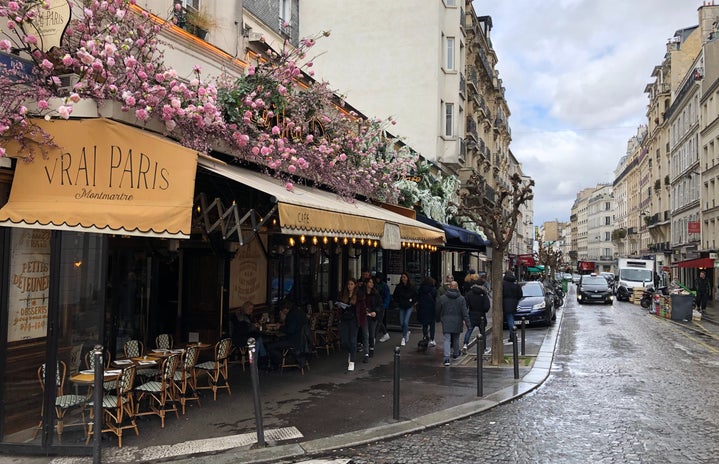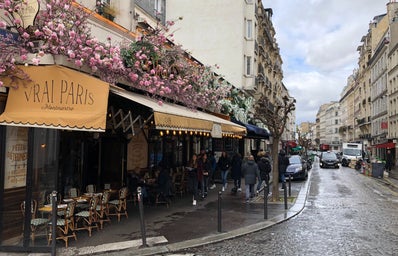The sky was on the precipice of sunset, which seemed a permanent act in Paris. It was something the sky here was always straining towards, and you were striving and hoping right there with it—and then, just as you were gripping things more tightly, holding your breaths deeper and longer in your chest, widening your eyes in an anticipatory daze, the sky would blink straight into black. A simple switch from golden blue to a deep, rolling blackness, with no sunset in between.
I never quite understood the possibility of such an event. The dissonance that hit my bones from each missing sunset made me realize that I’d completely stepped out of my normal reality for the summer, and into something new and foreign. It was a good reminder that I wanted to make the most out of this experience, to do well in my internship, travel across Europe in my free time, and learn about different cities and cultures.
Growing up, one of the greatest allures of college was the chance to study abroad. I imagined myself traipsing through Paris, flaky croissant in hand, studying at the Sorbonne and constantly flitting from place to place. This is a spoiler, but I’m glad I opted to intern abroad instead. The experience made me realize that the exciting, glamorized ideals I’d built up in my mind were not what made a trip truly worthwhile. Rather, it was the small, everyday moments that did.
Although on first impression the French seemed to be in a constant rush, speed walking and sidestepping each other on the streets, I soon noticed they took the time to sit in the present moment too. There were always people on café terraces slowly sipping coffees and people watching, ambling through art museums mulling over every piece, or taking drawn-out lunch breaks at the park. Once I started copying them, my stay felt more calm and fulfilling.
On a particularly slow day in July, I was sitting at the Tuileries Garden pond with my friend, trying to read. It was 9:30pm and still bright outside, the sun had been trying to hit sunset for hours. I could barely read a sentence without getting distracted. I kept looking up at the water, comparing it to Monet’s work, and feeling waves of shock that he hadn’t been lying.
So instead I started writing on the first page of my new journal, something I hadn’t done for years. I wrote about the Ferris wheel in the distance, since it felt more poetic than the water—I thought that even if everything else disappeared, if Paris and all its art fell off the face of the Earth, the Ferris wheel would remain standing there, its place cemented in the landscape.
When it got too cold to sit still, we got up and walked through the nearby summer fair, slowly looking at all the lit-up booths full of candy, plush toys, and boiling canola oil. It occurred to me that somewhere between the green chairs by the pond and the Godzilla rollercoaster, it had turned to night. We made it to the end of the fair and looked at each other expectantly, as if there was a conclusion there. But we had nothing better to do so we backtracked and walked past everything again, chatting about books and journalism and the death of Marat.
Looking back, it was one of my favorite days in Paris, and nothing especially eventful happened. There was a relaxed, comforting sort of aimlessness to the day. Although the chaotic days filled with a flurry of activities, friends, and travel felt more exciting, there was something so peaceful and simple about the times where I had nothing to do but linger in the moment.


